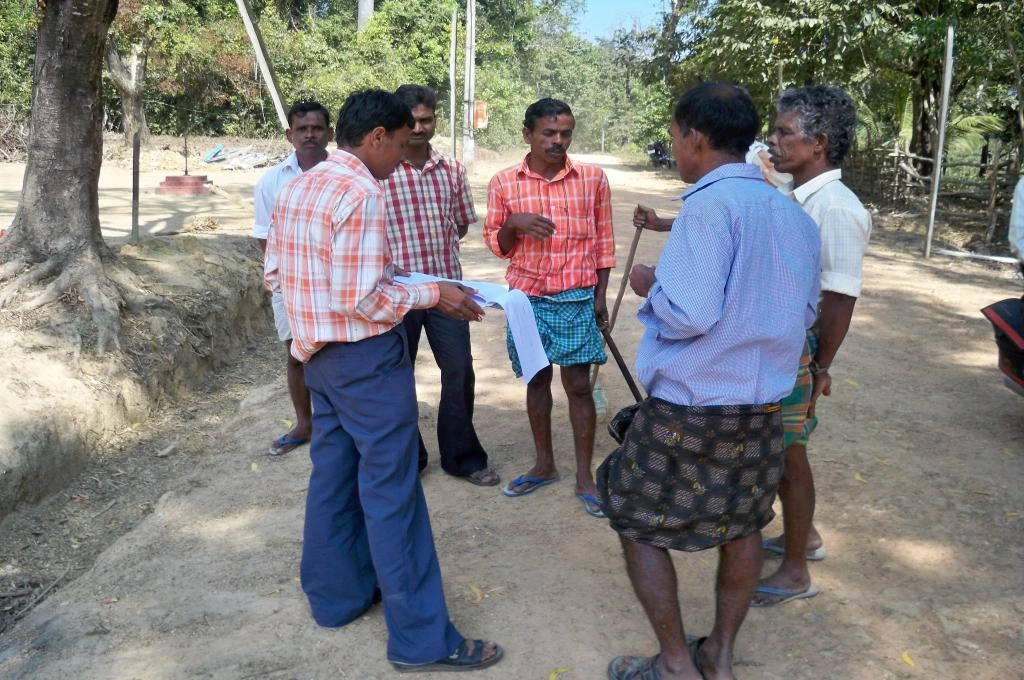In the age of information, data is an integral part of any development intervention, be it a small-scale community project, a large-scale programme, or anything in between. It’s no longer acceptable to proclaim the impact of your work in just words. You need adequate data and evidence to back your claims.
Having said that, anyone who has implemented a programme cannot help but ask, does data really represent the situation on the ground? Can ‘change’ be summarised in numbers? Are these numbers reliable?
Organisations often assess performance based on numbers, without taking into account the on-ground context that may have impacted them.
Everyone knows that data and technology play an important role in enabling programmes to be implemented effectively and efficiently. However, having said that, we must recognise that merely employing data and technology, and developing complex monitoring and evaluation systems does not ensure the same. For example, organisations often collect data they don’t use except in donor reports (sometimes not even for that), spend money on building management information systems (MIS) that are difficult to manage, struggle to get buy-in from the field staff responsible for data collection, find their own data unreliable, and assess employee and/or programme performance based on numbers, without taking into account the on-ground context that may have impacted them.

Related article: Civil society and the burden of data
Given how organisations struggle with this, here are some questions to reflect on that will help you assess why, how, and when to collect data and use it meaningfully.
Organisations often collect data that they feel ‘should’ be collected without reflecting and pre-empting how they will use it once it is collected. The more data being collected, the more time, resources, and energy it is likely to consume. By working backwards, you can derive the data and information you’re likely to need from the decisions and/or actions you’re looking to take using it.
Conduct a small pilot, or use dummy data to review whether what you want to collect will help you assess the performance of your programme. Can you derive the necessary insights from the data? Is there something missing? This will help you implement and tweak your processes accordingly.
Very often, organisations collect and use data for periodic reports that are presented to senior management and donors at project review meetings. However, other than that one review meeting, is the data collected referred to through the course of your day-to-day work? What are the barriers preventing you from using these reports more regularly?

By using data on an ongoing basis, the team engaged in your data processes is likely to value their work a lot more, and not view it just as an administrative task.
By collecting data that is useful to your day-to-day work and making it accessible to all relevant stakeholders in an easily consumable format, you aren’t just helping your organisation become more objective and data-driven, but are also increasing transparency and accountability within your organisation. Further, by using this data on an ongoing basis, the team engaged in your data processes is likely to value their work a lot more, and not view it just as an administrative task. With more eyes looking at and assessing these reports, you’re also likely to identify errors and gaps internally, and use this as an opportunity to encourage problem solving, innovation, and ownership across the board.
If the data you’re collecting, referring to, and communicating is unreliable, it defeats the purpose of using it to implement better programmes. It is critical to ensure that all measures to ensure high data quality are taken so that it acts as an asset and an effective tool to monitor and evaluate your work.
For example, if you’re collecting data from just a sample of the population or geographies you work in but the sampling is not done in the correct or ideal way, the data collected may not be an accurate representation of the entire demography you work with. Similarly, if you use only quantitative data collection methods but qualitative methods (such as personal interviews and/or group discussions) are more suited for your work, then you will not be able to derive the necessary insights from the data.

By collecting data that is useful to your day-to-day work and making it accessible, you are also increasing transparency and accountability within your organisation | Picture courtesy: Pixabay
More often than not, the task of collecting data from the ground up usually rests with frontline workers and field staff who, apart from having multiple other things to do, are also responsible for collecting a wide range of data – attendance at meetings, information and profiles of stakeholders, meeting minutes, MIS data, and so on. Additionally, more often than not, these staff members are not provided any extra compensation for taking on additional responsibilities (specifically referring to roles that may not have a ‘data collection/management’ element in-built in them until the need arises). It isn’t surprising then, that a lot of data errors tend to happen at this level (or if the data collected is recorded on paper, then during transcription or digital entry).
Further, the time and energy required to deliver these responsibilities aren’t always considered while assessing performance. By recognising the time, energy, and resources that go into collecting, managing, analysing and presenting data, you can also assess the return on investment and whether it is worth it.
Related article: How to use data to improve decision-making
Working in the development sector can bring with it many challenging situations and contexts. Many organisations work in remote areas or with communities that remain largely under-exposed to technology and data processes. The quality of data is often impacted by the local context in which you work. It is important to recognise and take this into account, as numbers and data may not always reflect the whole truth (in fact, they seldom do).
Many organisations limit their idea of ‘data’ to numbers. However, in this age of digital media, photographs, film, audio recordings, and other creative media can also be employed to monitor, assess and evaluate your work. Are you using different kinds of media to add more dimensions and perspective to your work? It may be more time- and resource-intensive, but it’s also likely to add more depth to your analysis, reflections, and communication efforts.
An important question to periodically ask yourself is whether your data processes and efforts are aiding your journey towards your goal(s). If you find that they aren’t adding much value to how you’re implementing your work–neither in planning and implementing, nor in monitoring and evaluating your work–then you’re either collecting the wrong data, or not using it in ways you should or could be.
Data can play an important role in delivering successful programmes, be it to help donors assess the return on their investments, inform strategic decisions, enable managers to monitor work on-ground and across locations, help field staff take corrective measures, or provide organisations with the necessary information to reflect on what’s working and what’s not over time, functions, and geographies. These questions seek to help you reflect and ensure that your data processes stay relevant and in line with your needs. Remember, data is a tool to help you reach your end goal(s); it isn’t the goal in itself. So keep reflecting on whether your data processes and efforts are helping you get there.




